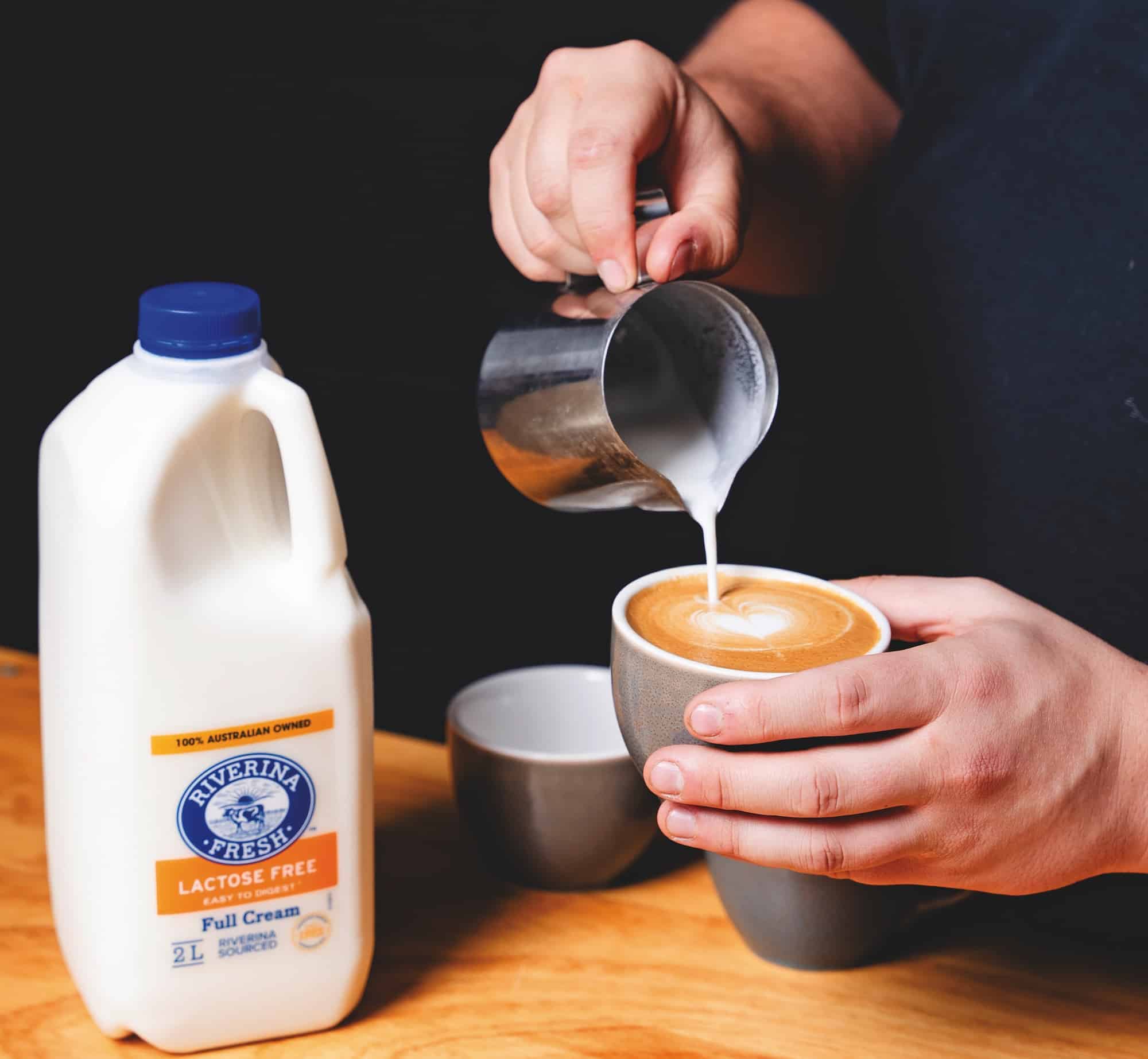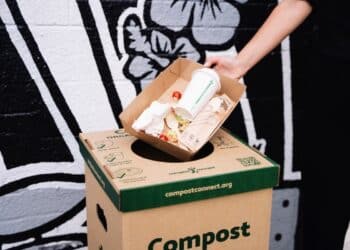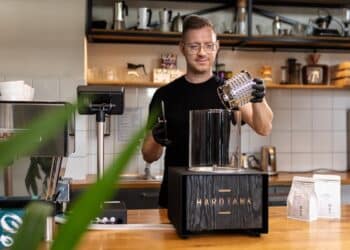With the popularity of weight-loss injections climbing, the hospitality industry could experience a major shift in consumer habits. Riverina Fresh explores the growing interest in nutritional value, the impact it could have on Australia’s café industry, and the potential of lactose-free milk.
Australia has always been aligned with wellness trends. Many of the fashions that have swept the world first gained popularity in the country’s beachside cafés and inner-city coffee shops – from chia puddings and cold-pressed juices to superfood lattes and café run clubs.
But there’s a new health movement that’s making its way to Australian shores from the United States (US) that could have a big impact on the hospitality industry and the buying habits of its customers.
Weight-loss injections – also known as GLP-1 drugs – that mimic appetite-suppressing hormones are on the rise. A recent health-tracking poll reported one in eight adults in the US has used them at one point, and one in 16 adults currently use the products.
The exact number of people using the drugs in Australia is not yet known, but a recent poll of GPs by the Royal Australian College of General Practitioners found 49 per cent of respondents reported daily requests for the medication.
As CEO of Riverina Fresh, one of Australia’s leading home-grown dairy and food service providers, Craig Shapiro forecasts the trend could have big implications for the hospitality sector.
“The increase in popularity of these drugs is being driven by the US and what you can see from the American market is that they are changing consumer consumption – people are eating less. Some parts of the FMCG (fast-moving consumer goods) space are seeing consumption drop by eight to 10 per cent,” says Craig.
“If people are putting less on their plates, the entire food and hospitality sector is going to be affected.”
However, Craig doesn’t believe the trend will necessarily reduce the number of visits people make to cafés in Australia but instead change what they’re ordering, with the potential for nutrition to become even more important for consumers.
“While people using the GLP-1 drugs are eating less, they are often paying more attention to the nutritional value of what they are eating. For example, there’s an emphasis on ensuring they are getting enough protein to sustain muscle strength,” he says.
“If you’re only eating bite-size amounts, you’re going to want your main meals to be nutritionally balanced. This interest in protein also ties into the wider trend for high-protein foods, which has resulted in a lot of protein-enhanced products such as yogurts, flavoured milks, and ready meals.”
In fact, Craig believes this movement provides a significant opportunity for the dairy industry. With dairy being a natural source of protein, Riverina Fresh has already seen a subtle uptick in the number of coffee drinkers choosing to pair their espresso with milk instead of plant-based alternatives.
Dairy back on top
As a foodservice provider supplying plant-based alternatives to the hospitality industry alongside its fresh Australian milks, Riverina Fresh has a broad overview of the market and consumption trends. Craig says while different alternatives have risen and fallen in popularity over the past 15 years, now could be the time that dairy steps back into the limelight.
“Two decades ago, lactose-free milks didn’t really exist, so that gave rise to plant-based alternatives. At first, soy was the most popular product, however, evolving consumer preferences saw a shift to almond and then, in recent years, to oat. The drivers of change have included health and nutrition, environmental concerns, and product innovation,” he says.
“Today, about 25 per cent of what we sell to cafés is plant-based, with the remaining 75 per cent being dairy.”
According to Craig, these latest statistics indicate plant-based drink consumption among Riverina Fresh’s hospitality customers has peaked. Of course, that’s an average across the country, with its inner-city customers sourcing more of a 50/50 split between dairy and alternatives, and regional venues showing a much higher preference for fresh dairy milk.
“Anecdotally, I think some people are making the switch back to dairy for health and nutrition reasons. Consumers are now a lot more aware of highly processed foods and they want to know exactly what’s in their cup,” he says.
What’s more, over the past few decades the dairy sector itself has seen wavering trends influenced by the wellness industry and diet culture. While 10 years ago fat may have been public-health enemy number one, with skim milks popular in cafés across the country, the narrative has shifted to embrace the benefits of healthy fats in foods like whole milk, avocados, and nuts.
“Just over a decade ago, skim milk was extremely popular, but now it’s one of our smallest selling products,” says Craig.

A lactose-free solution
While Riverina Fresh has long offered a lactose-free version of its 100 per cent Australian milk, the team are eager to introduce it to more coffee shop operators as an alternative to plant-based options.
The process to remove the lactose to make it safe to drink for lactose-intolerant consumers simply involves adding the enzyme lactase, which breaks down the lactose into simple sugars. This results in a naturally sweeter product that steams and textures like any fresh dairy milk.
“There will always be a space for plant-based alternatives, but I think as the interest in health and nutrition gains momentum we’ll see more people who can’t digest lactose opt for lactose-free dairy milks. Having a high-quality product that performs in the café or for the home barista like all of our fresh milks means there’s a viable lactose-free option for Riverina Fresh customers,” Craig says.
The natural sweetness of Riverina Fresh Lactose-Free Milk has made it popular among baristas competing in championships. According to Craig, they like the subtle sweetness the milk adds to their creations. Australian Barista Champion Jack Simpson has used it as part of his routines over the years.
Katie Harris, Location Manager of Cassiopeia Café in New South Wales, has been using Riverina Fresh Lactose-Free at the four cafés she manages in the Blue Mountains and surrounding area for the past few years. She says using fresh lactose-free dairy, instead of UHT varieties that were previously the only option for many venues, has completely changed the game.
“The UHT milks were hard to work with. They didn’t steam well and the flavour profile wasn’t great. Since we made the change to using Riverina Fresh’s version, the only difference to using normal whole milk is the slightly sweeter taste, which many of our customers like,” she says.
“We now get people in most days asking for lactose-free dairy and it’s gaining traction. We still have a lot of customers who ask for alternatives like almond, but I’ve noticed there’s been a gradual shift away from plant-based and that more customers are concerned about the use of ingredients such as seed oils in those products.”
With an in-house roastery providing all the beans for Cassiopeia’s venues, Katie says as a barista her preference is to serve the own-roasted coffees with dairy.
“We roast our house blend with the mindset that it’s going to be paired with dairy. A few years back when everyone was drinking soy, we had to tweak our recipe to make sure it complemented both types of milk,” she says.
“My personal preference is to have it with dairy as I think it tastes better that way. Being able to offer lactose-free dairy enables us to better serve our community’s needs. Of course, we’ll always aim to fulfil our customers’ preferences, but there’s definitely some movement in what people are choosing to pair their coffee with.”
For more information, visit riverinafresh.com.au
This article appears in the August 2025 edition of BeanScene. Subscribe HERE.




